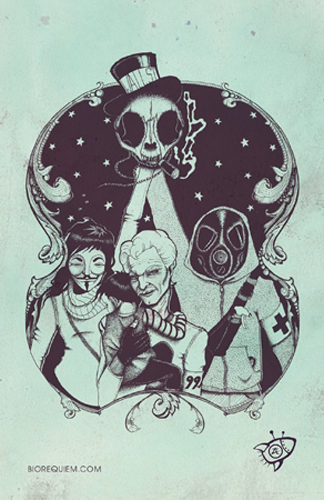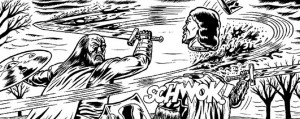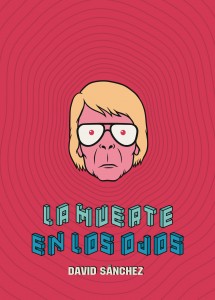The relationship between art and politics has always been fractious and in the case of comics it’s no different. Of course, good political comic books have been made –Alan Moore and David Lloyd’s V For Vendetta springs to mind, a story that managed the rare feat of being both politically engaged and exciting –but they are rare. Indeed, when one thinks of political comics it can be all too easy to cast your mind back to books like John Smith and Jim Baikie’s hopelessly lumpen New Statesmen, with its broad and unsubtle swipes at globalisation, through the medium of a sadly conflicted superhero story.
Occupy Comics and its publisher Black Mask have set themselves the task of raising awareness and money for “Occupy related initiatives”. This in itself is laudable. The Occupy Movement has gone pretty much ignored by all the major comic companies (DC’s farcical The Movement launch last month, notwithstanding). The immediacy of the comics form allows for energetic and intelligent work to be produced relatively cheaply, unlike, say, film, where costs swiftly become prohibitive. Comics have a long history of responding to the tone of their times –be it Joe Simon and Jack Kirby’s Captain America punching Hitler in the jaw, or Garth Ennis’s reflective series on Northern Ireland in the 80s, Troubled Souls. Any attempt to extend this history of engagement and reflection should be encouraged.

The list of talent compiled in this issue alone is cause for hope. Alongside the ubiquitous Alan Moore, we have Dave Mack, Molly Crabapple, Si Spurrier, Joshua Dysart and many more. Creators from both sides of the mainstream/indie divide have come together to lend their voices and talents to a good cause. What’s not to like? Well, sadly, as with a lot of efforts of this type, Occupy Comics is a disappointingly mixed bag.
The format does the creators no favours. Trying to fit this much talent into 48 pages was never going to be easy and some of the longer, more ambitious work suffers accordingly. The writers and artists only have time to make broad swipes in the direction of the themes the anthology raises and the results are generally unsatisfying. There are exceptions. It would be a hard heart that wasn’t moved by Matt Milner and Sean Von Gorman’s ‘Light’, a brief tale of Occupy’s efforts to help the people of Rockaway post-Hurricane Sandy. And some of the more iconic one or two-page images are just beautiful, with Anna Wieszczyk and David Mack really standing out in that regard. But in the end the most satisfying piece is Alan Moore’s reliably excellent essay on the history of the comics industry’s complex relationship with big business and counter-culture, ‘Buster Brown At The Barricades’. That the stand out contribution should be an essay rather than a piece of comics work, is in itself somewhat damning, but the brilliance of the essay, plus the striking qualities of some of the single image work makes Occupy Comics worth the price of admission alone. It’s just a shame that the disappointing element of an anthology called Occupy Comics should be the comics work itself. **
Occupy Comics #2 was released via Black Mask on June 20, 2013.















